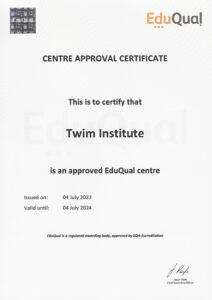
Being a professional Chef not only entails being able to cook sumptuous meals, but it also goes way beyond that. For instance, having great knife skills, the ability to manage the kitchen properly, proper time management, etc are all involved in what makes one a great Chef.
A lot of people get proper training in this aspect as there are lots of training schools in this regard of which the Twim Institute is one of them. Students do not only learn how to make local and international dishes that place them an edge over others or drinks and pastries alone but the basic requirements of how to maintain and work effectively in any environment they find themselves in.
In this article, we will be discussing kitchen management and everything it involves.
First, kitchen management refers to the process of managing and organizing all aspects of a kitchen, including food preparation, inventory management, staffing, equipment maintenance, and cleaning.
Effective kitchen management is essential for the success of any food-related business, including restaurants, cafes, and catering services.
To run a successful kitchen, it is important to have a clear understanding of the various tasks and responsibilities involved, as well as the ability to prioritize tasks, manage time effectively, and work well under pressure. A well-managed kitchen can help ensure that food is prepared safely and efficiently, customers are satisfied, and the business is profitable.
Key Areas of Kitchen Management
Kitchen management is the process of organizing and coordinating all the activities and tasks involved in running a kitchen efficiently. This includes tasks such as menu planning, inventory management, ordering supplies, food preparation, cooking, and cleaning.
Effective kitchen management is essential for any food service operation, whether it be a restaurant, hotel, or catering company, as it ensures that food is prepared and served safely, efficiently, and with consistent quality.
Here are some key areas of kitchen management:
Menu Planning
This involves creating a menu that is appealing to customers, fits within the restaurant’s theme or concept and can be prepared with the available resources. Menu planning also involves calculating food costs, determining portion sizes, and considering food allergies and dietary restrictions.
Inventory Management
This includes keeping track of all the ingredients and supplies in the kitchen, ensuring that they are stored properly, and ordering more when needed. Good inventory management helps to prevent waste, control costs, and ensure that the kitchen has the necessary ingredients and supplies to operate smoothly.
Food Preparation
This involves preparing and cooking food according to recipes and menu specifications. It also includes ensuring that food is cooked to the appropriate temperature to prevent foodborne illnesses, as well as properly portioning and plating dishes for presentation.
Staff Management
This includes hiring, training, and scheduling kitchen staff, as well as managing their performance and ensuring that they follow proper food safety and sanitation protocols.
Cleaning and Sanitation
This involves maintaining a clean and sanitary kitchen environment, including regular cleaning of equipment, surfaces, and utensils, as well as proper disposal of waste and garbage.
Equipment Maintenance
This involves ensuring that all kitchen equipment is functioning properly and is well-maintained to prevent breakdowns and costly repairs. It also includes scheduling regular maintenance and repairs as needed.
Budgeting and Financial Management
This involves creating a budget for the kitchen, monitoring expenses, and ensuring that the kitchen operates within its budget. It also includes analyzing financial data and making adjustments to the menu or operations to increase profitability.
Effective kitchen management requires strong leadership, communication skills, and attention to detail. A well-managed kitchen can help to improve customer satisfaction, reduce costs, and increase profits for the food service operation.
Conclusion
In conclusion, effective kitchen management is essential for the success of any food service operation. A well-managed kitchen ensures that food is prepared safely and efficiently, customer orders are fulfilled promptly, and inventory is managed effectively.
Effective kitchen management requires a combination of skills including leadership, communication, organization, and time management.
A good kitchen manager must have strong leadership skills to lead and motivate their team, set expectations, and ensure that everyone is working towards the same goals.
Communication is also essential for effective kitchen management. A kitchen manager must communicate effectively with their team, other departments within the food service operation, and customers.
Organization and time management are also critical skills for effective kitchen management. A well-organized kitchen allows for efficient workflow and reduces the risk of mistakes or accidents.
Effective inventory management is also important to ensure that there is enough stock on hand to meet customer demand without overstocking and creating waste.
In addition to these essential skills, a good kitchen manager must also be knowledgeable about food safety and sanitation practices, menu planning and costing, and equipment maintenance and repair.
Overall, effective kitchen management is essential for the success of any food service operation. A good kitchen manager must have a combination of leadership, communication, organization, and time management skills, as well as knowledge of food safety and sanitation practices, menu planning and costing, and equipment maintenance and repair.
With these skills and knowledge, a kitchen manager can lead their team to success and provide high-quality food and service to customers.




